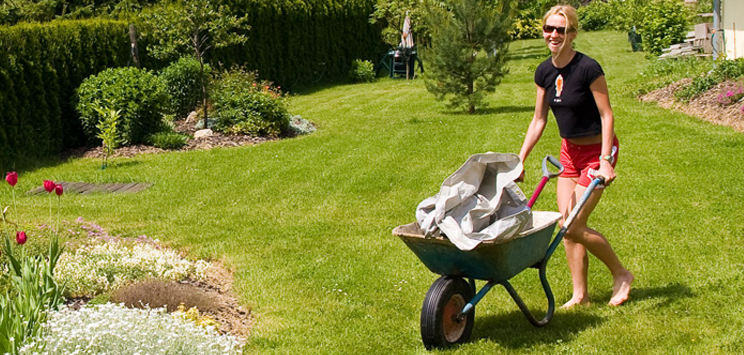
Protect Your Landscaping: A List of Deer Proof Plants
By
Most Trees
Trees make great additions to landscaping and are a good choice not only because they are primarily deer proof, but because they’re also low maintenance. Trees often repel deer with their rough, toxic, or bitter foliage. Most evergreens, Oaks, Northern Catalpas, Sourwoods, Flowering Dogwoods, Honeylocusts, Red Maples and Palms all make great choices.
Shrubs and Bushes
The Blue Mist shrub can be a low maintenance and wonderful addition to any homeowner’s landscape, as it grows all over the U.S. This shrub has stunning blue flowers that put off a strong pleasant fragrance. Junipers, Yews, Boxwoods, Andromeda, Bluebeard, Russian sage, Barberry, Bayberry, Daphne and Butterfly Bushes are also great deer proof plant choices.
Roses
Most gardeners love roses, but because deer love to snack on them, people often exclude them from their landscaping. However, Rugosa roses are not well-liked by deer and are very durable and able to withstand a variety of different environments. These roses have a clove-like fragrance that is not appealing to deer. These deer proof roses have a tropical look that adds a splash of color and beauty to any garden or landscaping.
Palms
Give your landscaping a tropical feel by planting palms, such as the Needle Palm, which is a popular choice on the west coast. In general, palms of all kinds are not a preferred food for deer. Needle Palms are frequently found along the West Coast of the U.S. These palms need very little pruning to maintain their shape, but obviously, they only thrive in warm climates.
Perennials
Perennials are loved by homeowners because they co me back year after year and require little maintenance and they come in many colors and varieties. Forget Me Nots, coneflowers, daffodils, yarrow, bellflower, tickseed, lavender, balloon flowers and goldenrod are all great flowering perennials that deer usually won’t eat.
Ferns
Ferns can be great tool to add necessary shade or architecture to any homeowner’s garden or landscaping. They are generally deer proof plants. Autumn ferns turn a different color with each passing season. These ferns are almost completely self maintained and can reach two or more feet tall.
Annuals
Annuals must be replanted each spring, which makes them attractive to homeowners who like to change the look of their landscaping every year. Many annuals are toxic or have a bitter taste that makes them great deer proof plants. Snap dragons, which can stand over a foot tall, are a stunning flower that add great curb appeal to your home. Other great deer proof annuals are angel’s trumpet, spider flowers, marigolds, mums, sweet alyssum, strawflowers, buttercups, heliotrope, poppies, and snapdragons.
Herbs
Fresh herbs are loved by culinary enthusiasts. They can be a great addition to any garden because they look appealing and are fragrant. However, it is that strong fragrance that seems to make them great deer proof plants. Chives, sage, rosemary, thyme, and mint are all great deer-repellent choices that can also be used in cooking.
Vegetables
Fresh picked produce is great, but as much as humans love it, deer usually do too. Unfortunately vegetables and fruit are the two hardest things to keep away from deer. Potatoes, blueberries, tomatoes, asparagus, artichokes, leeks, onions, rhubarb, eggplant, carrots, fennel and garlic are all deer repellent plants.
Deer Repellents
Since most homeowners can’t make a complete garden or landscaping arrangement solely from deer proof plants, deer repellents may also be used to keep your greens from being eaten. Store-bought products like Liquid Fence or Bobbex Deer Repellent work well to repel deer.
Homemade options include ingredients like Tabasco sauce, dish soap, garlic, or raw eggs and can be sprayed directly onto plants. However, all deer repellent sprays must be re-applied periodically to maintain effectiveness.
Another unique homemade deer repellent option is to sprinkle your flower or landscaping bed with human hair. Use hair from your last haircut or trim, as it emits an odor that deer associate with humans, thus they will try their best to stay away from that area.














 newsletter no longer available
newsletter no longer available